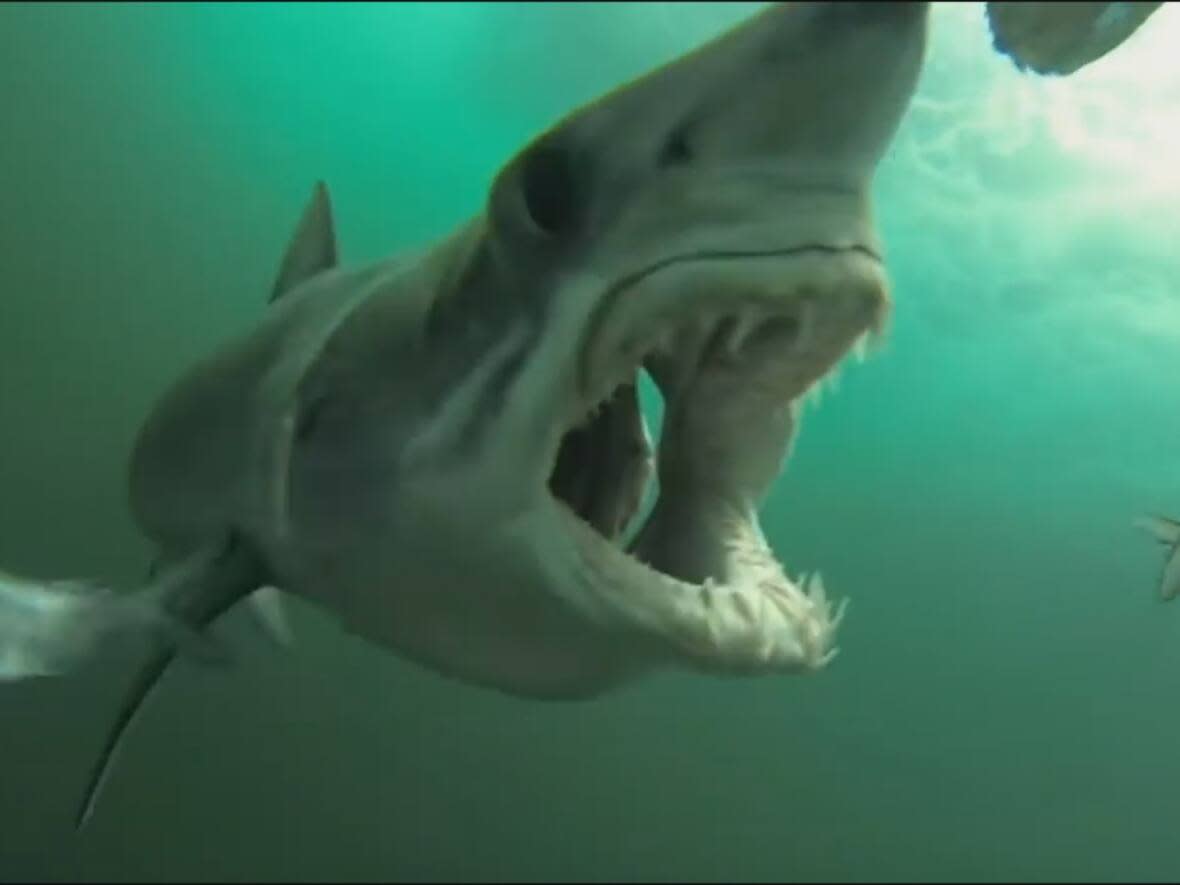Landing ban means more mako sharks are likely to survive accidental capture: federal assessment

An ongoing ban on landing endangered shortfin mako sharks is likely to mean a majority survive accidental capture in the Canadian longline fishery, according to a federal assessment.
Two years ago, the Department of Fisheries and Oceans ordered the release of all makos — dead or alive — when landed unintentionally.
Canada doesn't have a targeted mako fishery.
Under Canadian leadership, the policy of not retaining makos was adopted in 2022 on a temporary basis by dozens of other fishing nations belonging to the International Commission on the Conservation of Atlantic Tunas.
'Anything alive has a chance'
Canadian shark research scientist Heather Bowlby said the prohibition is the best way to protect the apex predator that roams the northern hemisphere of the Atlantic Ocean. It has been clocked at 74 km/h.
"If they're all in the water, anything that's alive at least has a chance," she said.
Bowlby is lead author of an assessment of recovery potential prepared under Canada's Species at Risk Act. The report was released this month.

It estimates on average that 23 per cent of makos captured in the longline fishery in open ocean are dead on arrival, which is described as "at-vessel mortality." Twenty-eight per cent of those released alive later die.
"The majority of captures are expected to live following interaction with the Canadian pelagic [open ocean] longline fishery, " the assessment said.
At-sea observers
The report says at-vessel mortality rates between 2010 and 2017 were consistently in the range of 20-30 per cent, but jumped in 2018 and 2019 to 52 per cent and 69 per cent respectively. Those figures coincided with years when compulsory live release was a condition of licence.
The report says it's "likely" at-sea observers were categorizing injured makos as dead so they could be legally landed.
"There seemed to be a fairly substantial jump in the number that were categorized as dead at vessel," Bowlby said.
Canada leads campaign to save makos
The most recent projection from the International Commission for the Conservation of Atlantic Tunas says total mako removals must drop to under 500 metric tonnes in order to give the species a 52 per cent chance of recovery by 2070.
The species-at-risk assessment notes Canadian bycatch in the North Atlantic at 63 tonnes in 2019 is a fraction of international levels — 1,863 tonnes — meaning "there is no scope for Canada to affect recovery" even if removals here went to zero.
Canada successfully campaigned for international adoption of the no-landing policy, which will have an impact on rebuilding the population if it continues, says Shannon Arnold of the Ecology Action Centre in Halifax.
"They led at the international level and said this is a shark that ranges across the entire North Atlantic and everyone needs to be doing this," Arnold said.
"Canada fought really hard at these international negotiations for the last two, three years and got something adopted. And so now we have to make sure they shore that up and keep it on the books."
Landing prohibition temporary
She said the ban removes any incentive to target makos, but it is not etched in stone.
The international measure is in place for 2022 and into 2023.

This week, scientists with the International Commission for the Conservation of Atlantic Tunas will review data and estimates of mako mortality from fisheries. Arnold says some European nations that target makos want the landing ban rolled back.
Even if the ban continues, and is successful, it will be more than a decade before abundance increases since the majority of those captured are juveniles.
"Fortunately or unfortunately, sharks have a long life history," Bowlby said. "And so it will take a number of years before you would expect to see abundance increase from reproduction.
"One of the things, though, that we would expect to see immediately is more reports of mako being around because obviously they're not being removed by international fisheries right now, and so we'd expect to encounter them more in Canadian waters and that seems to be the anecdotal reports that we've been having."
MORE TOP STORIES


